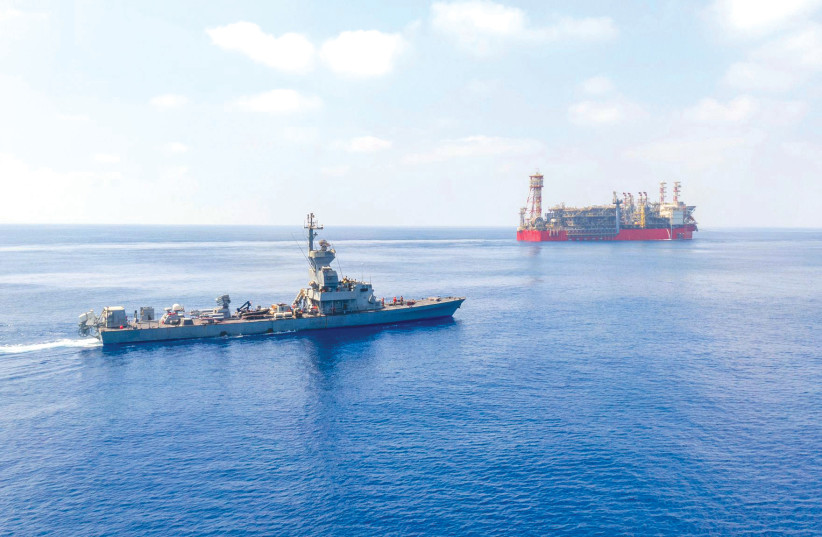Hezbollah learned from maritime deal how to threaten Israel – analysis
Last October Israel and Lebanon were on the brink of a US-backed maritime deal when suddenly it seemed that a war could break out. This was unusual, because a deal was supposed to bring more security and stability. Instead it appeared Hezbollah was able to threaten conflict if a deal wasn’t signed.
Iran had used the same method in 2015, quietly pushing narratives in western media that said if an Iran deal didn’t happen then there might be war. In the end Iran got its deal and so did Hezbollah. Today Iran’s axis is once again learning how to create tensions and score points.
The new story relates to Hezbollah’s demands regarding northern Israel and its claims that there are new disputed in Mount Dov and Ghajar. In fact there are no disputed, except by Hezbollah’s making. Hezbollah set up a tent in a disputed area. A tent is not exactly clandestine. This is about a show.
The pattern: A ‘compromise’ had to be made
At the same time, Hezbollah, using the Lebanese government as its spokesperson, now wants to negotiate. This is how the maritime deal also played out. Lebanon came into a situation where everything was working fine until Hezbollah provoked Lebanon to make outlandish claims. Then to get Lebanon to back down, and therefore to get Hezbollah to stop claiming it was “defending” Lebanon; a “compromise” had to be made.
 An Israeli Navy missile ship patrols the waters near the Karish gas rig. (credit: IDF)
An Israeli Navy missile ship patrols the waters near the Karish gas rig. (credit: IDF)Reports on Tuesday said that Prime Minister Benjamin Netanyahu met this morning in Jerusalem with White House envoy Amos Hochstein. They discussed regional issues. Hochstein played a key role in supporting the maritime deal last year.
This is the pattern. Last October NPR noted “the crux of the conflict was who gets to drill for natural gas in disputed waters off the Mediterranean coast. More than a decade of US mediation — with some recent saber-rattling by the Lebanese militant group Hezbollah — led to a compromise on the drilling rights, announced by the US, Israel and Lebanon.”
Once the deal was done in October, the alert for a possible confrontation was reduced. Hezbollah had been increasing its threats throughout 2022. This showed Hezbollah could create the “risk” of war over random claims.
Iran’s politicians are now heralding what they see as the success of Iran-backed Palestinian Islamic Jihad in Jenin. Iranian media on Tuesday said that whereas Palestinians once confronted Israel with rocks, now they use rockets. This is a reference to two incidents where groups near Jenin tried to set up rockets. Pro-Iranian Al-Mayadeen media also says Israel continues to live in the shadow of the “July war,” a reference to the 2006 war.
Al-Ain media in the Gulf notes that “Lebanon has expressed its willingness to demarcate the land border with Israel immediately, following the tensions of what has become known as the ‘tent crisis’, set up by Hezbollah.” This is an example of how Hezbollah operates and conducts Lebanon’s foreign and defense policy. Hezbollah illegally stockpiles weapons and sets up tents in a disputed area.
Then the Lebanese government follows that up with territorial demands against Israel. Hezbollah learned this from the maritime deal. It works in concert with Beirut, where Beirut is the “carrot” and Hezbollah the “stick” used in concert to try to get concessions and threaten war.





Comments are closed.